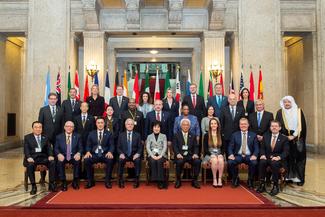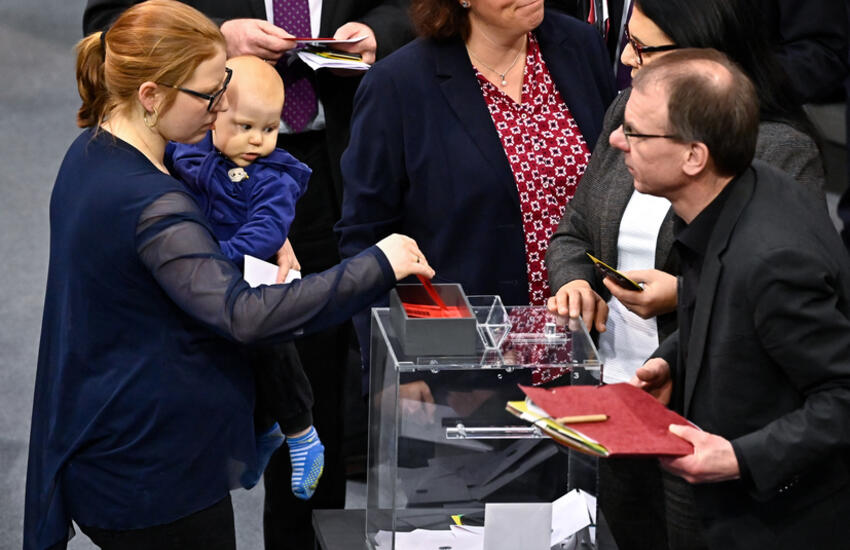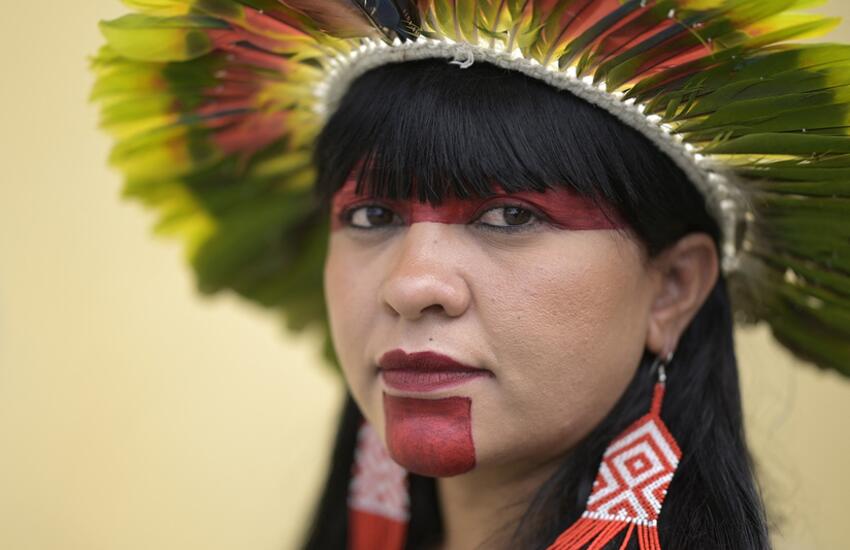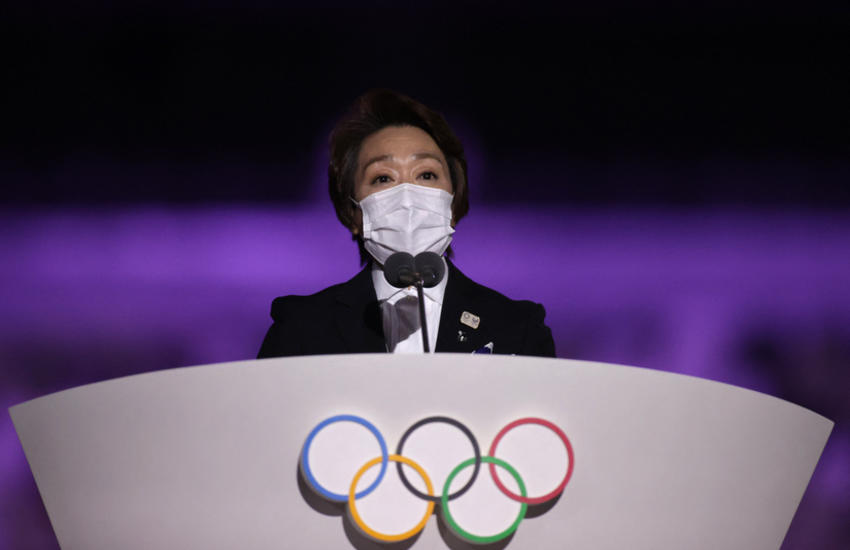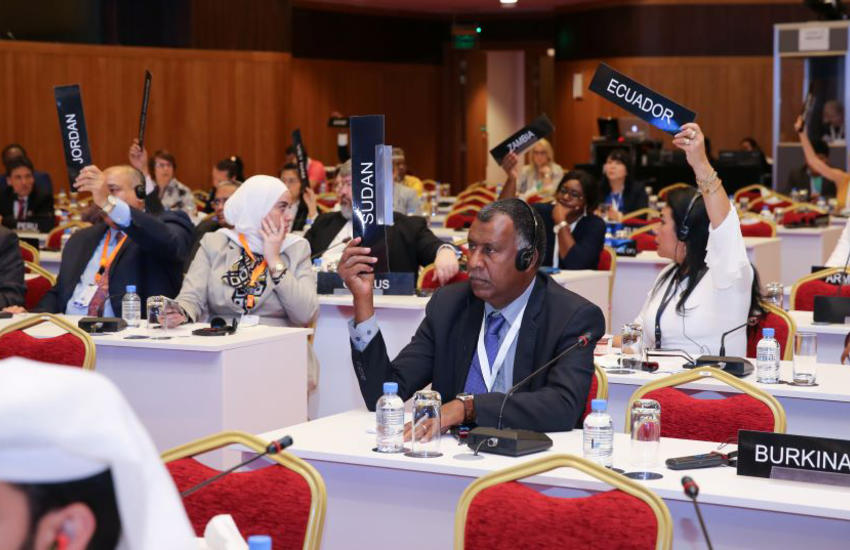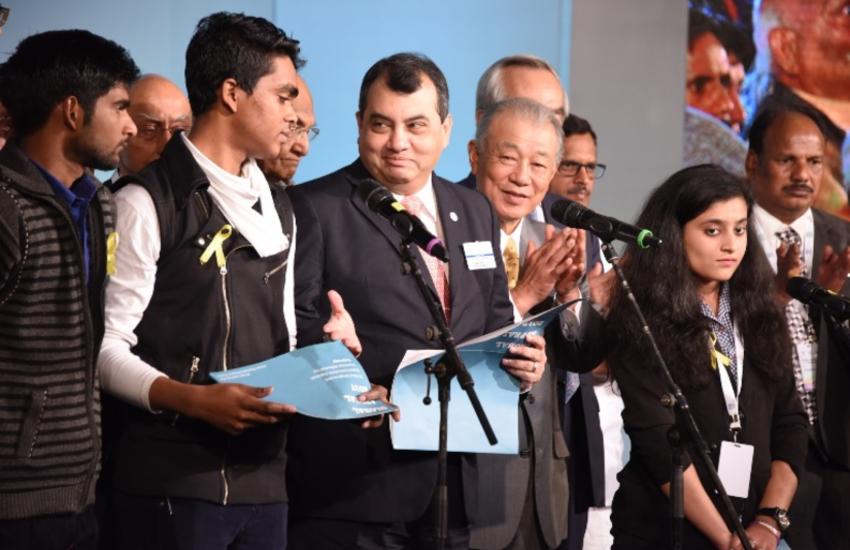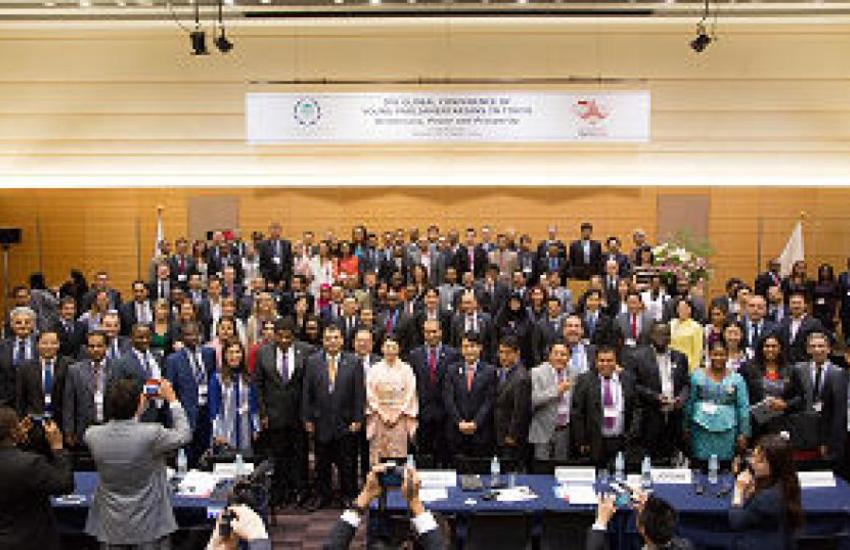The House of Councillors of the National Diet of Japan, in close cooperation with the IPU, brought together parliamentarians from the world’s 20 major economies at the sixth G20 Parliamentary Speakers’ Summit in Tokyo, Japan, on Monday 4 November.
The so-called P20 Summit follows the G20 Summit which took place in Osaka in June 2019 and builds on the results of the previous P20 Speakers’ Summit (Buenos Aires, November 2018). The Speakers’ Summit is part of wider efforts to bring a parliamentary dimension to global governance, raising awareness of and building political support for international commitments and helping to make sure that these are translated effectively into national realities.
This was the first P20 held in Japan, with close to 30 parliamentary leaders in attendance, including 13 Speakers or Presidents, as well as 11 Vice-Speakers or Vice-Presidents, of parliaments from the G20 members and others.
During the opening session, House of Councillors President Akiko Santo, referring to the global economic situation, stressed the need to create a virtuous cycle of sustainable economic growth and multilateralism by harmonizing all trade measures with the WTO agreements.
IPU President Gabriela Cuevas Barron stated that, in order to ensure greater transparency and accountability in global governance, parliaments needed to be more involved in the main international processes, including the G20. Multilateralism needed to be conducted in the service of the people, delivering tangible results that could improve the lives and ensure the sustainability of our planet. That was why the P20 Speakers’ Summit was so important and she looked forward to its further contribution to the G20 process.
Federico Pinedo, Provisional President of the Senate of Argentina, which hosted the previous P20 Summit, stated that massive popular participation and the growing demands of the citizens sent a strong message on the need to effectively tackle political and social conflicts. He also stressed the importance of guaranteeing broader interaction among people and enhancing their personal and collective development in order to adapt to change. He highlighted the importance of values including open dialogue which integrates different perspectives and promotes trust and understanding.
The first session, on Promotion of Free, Open and Fair Trade and Investment, was chaired by President Santo and featured discussion of the importance of an open, transparent, fair and indiscriminate multilateral trading system; the need to refrain from protectionist measures and trade practices that are inconsistent with WTO rules; and the acceleration of discussions to improve the functioning of the WTO, including its dispute settlement system. It also underscored the need to look beyond GDP and make sure that economic policies were guided by more comprehensive measures of progress and human well-being.
The second session, on Utilization of Innovative Technology towards a Human-Centered Future Society, was chaired by House of Councillors Vice-President Toshio Ogawa and featured discussion of the merits of utilizing artificial intelligence, the Internet of things, and other technologies to realize a human-centered society as well as the concerns over the potentially negative impact of technological innovation on employment and human welfare.
The third session, on Efforts towards Resolution of Global Challenges and Achievement of the SDGs (Financing for Development, Need for Transparent and Effective Government, etc.), was chaired by President Santo and Vice-President Ogawa and featured discussion of the importance of gender equality and women’s empowerment for the prosperity and sustainable development of society as a whole; the active promotion of political participation by women and youth; and the need for further investment in sustainable energy sources and clean energy technologies and infrastructure.
The closing session, during which a joint statement was approved, was chaired by IPU President Cuevas and concluded with remarks by President Santo, who emphasized the value of the G20 Parliamentary Speakers’ Summit as a forum for parliaments, as representatives of the people, to present their perspective on the G20 activities of their respective governments. Before declaring the meeting closed, President Santo reiterated the need to continue to develop the P20 framework in the future.
Read the Joint Statement.





